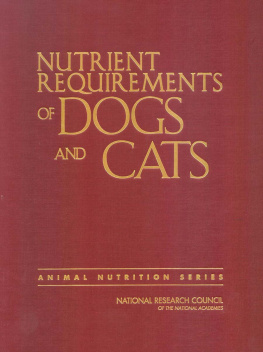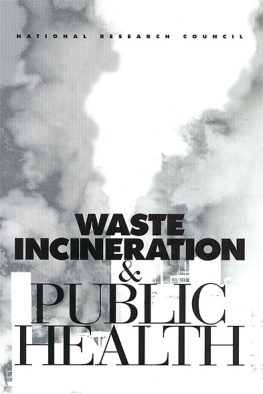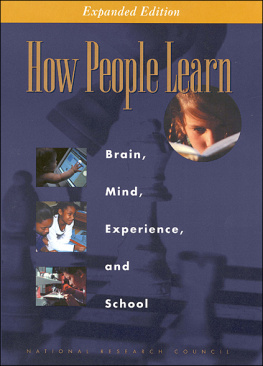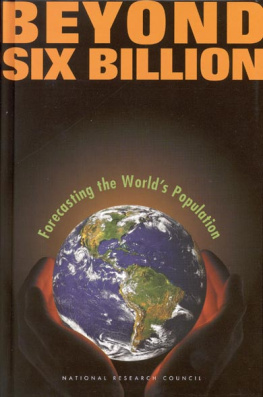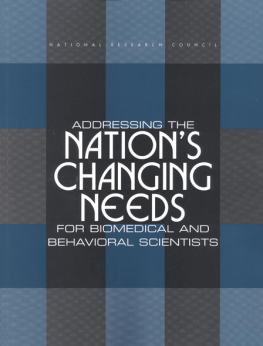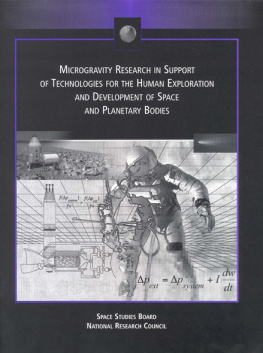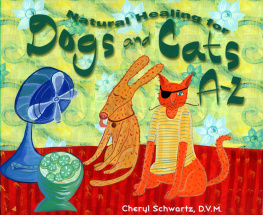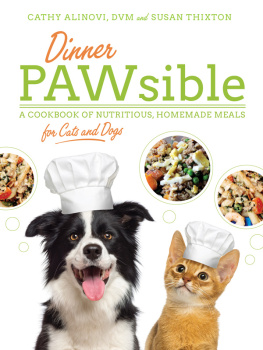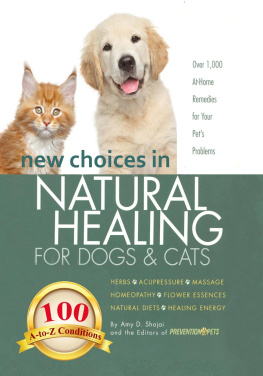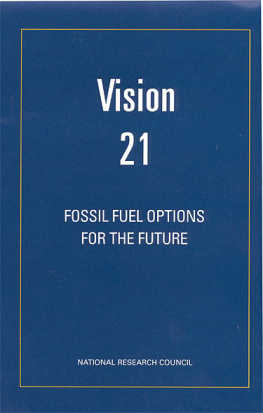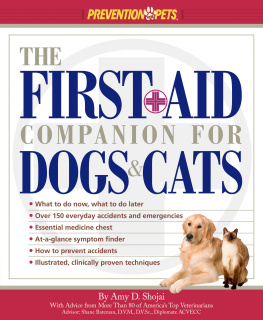National Research Council - Nutrient Requirements of Dogs and Cats
Here you can read online National Research Council - Nutrient Requirements of Dogs and Cats full text of the book (entire story) in english for free. Download pdf and epub, get meaning, cover and reviews about this ebook. year: 2006, publisher: The National Academies Press, genre: Home and family. Description of the work, (preface) as well as reviews are available. Best literature library LitArk.com created for fans of good reading and offers a wide selection of genres:
Romance novel
Science fiction
Adventure
Detective
Science
History
Home and family
Prose
Art
Politics
Computer
Non-fiction
Religion
Business
Children
Humor
Choose a favorite category and find really read worthwhile books. Enjoy immersion in the world of imagination, feel the emotions of the characters or learn something new for yourself, make an fascinating discovery.
- Book:Nutrient Requirements of Dogs and Cats
- Author:
- Publisher:The National Academies Press
- Genre:
- Year:2006
- Rating:5 / 5
- Favourites:Add to favourites
- Your mark:
- 100
- 1
- 2
- 3
- 4
- 5
Nutrient Requirements of Dogs and Cats: summary, description and annotation
We offer to read an annotation, description, summary or preface (depends on what the author of the book "Nutrient Requirements of Dogs and Cats" wrote himself). If you haven't found the necessary information about the book — write in the comments, we will try to find it.
National Research Council: author's other books
Who wrote Nutrient Requirements of Dogs and Cats? Find out the surname, the name of the author of the book and a list of all author's works by series.
Nutrient Requirements of Dogs and Cats — read online for free the complete book (whole text) full work
Below is the text of the book, divided by pages. System saving the place of the last page read, allows you to conveniently read the book "Nutrient Requirements of Dogs and Cats" online for free, without having to search again every time where you left off. Put a bookmark, and you can go to the page where you finished reading at any time.
Font size:
Interval:
Bookmark:

Donald C. Beitz, Ph.D. (Chair) is Charles F. Curtiss Distinguished Professor of Agriculture since 1989 in the Departments of Animal Science and of Biochemistry, Biophysics and Molecular Biology at Iowa State University, where he has taught since 1967. His expertise lies primarily in comparative nutrition, with an emphasis in human and domestic animal nutrition, biochemistry, and molecular biology. His research interests focus on lipid and vitamin metabolism. He is currently involved in research on the oral use of Eubacterium coprostanoligenes to decrease blood cholesterol in animals and humans; use of glucagon to prevent and treat bovine fatty liver; influence of vitamin D on meat tenderness; and genetic and nutritional regulation of fatty acid composition of meat and milk. Beitz has served as both a member (1990-1994) and chair (1995-1998) of NRCs Committee on Animal Nutrition. He also served as a member of the NRC Briefing Panel on Biotechnology in Agriculture (1985). In addition to numerous university-wide committees, Beitz also has served as a member and officer in professional societies such as the American Society for Nutritional Sciences (formerly American Institute of Nutrition), the American Society of Animal Science, American Dairy Science Association, American Society of Biochemistry and Molecular Biology, Comparative Nutrition Society, and various U.S. Department of Agriculture advisory committees. Beitz received his B.S. (1962) in agricultural science and his M.S. (1963) in dairy science both from the University of Illinois. He received his Ph.D. in dairy nutrition and biochemistry from Michigan State University in 1967.
John E. Bauer, Ph.D., D.V.M. is professor of small animal medicine and surgery and holder of the Mark L. Morris Professorship of Clinical Nutrition in the College of Veterinary Medicine at Texas A&M University. He is the immediate past chair of the Intercollegiate Graduate Faculty of Nutrition at Texas A&M. Bauers areas of specialization are lipid biochemistry, disorders of lipid metabolism, and comparative biomedicine and nutrition. His studies have included lipoprotein and fatty acid metabolism of domestic and exotic animals as well as animal models of hypercholesterolemia and atherogenesis of humans. He has written over 230 peer-reviewed and other publications, is the recipient of numerous grants, awards, and honors and is listed in American Men and Women of Science, and Whos Who in Veterinary Science and Medicine. He has received several Outstanding Paper Presentation Awards from the American Oil Chemists Society and C. E. Cornelius Young Investigator Research Award from the University of Florida. Bauer has chaired and has been an active member on several committees on animal nutrition over the past 20 years. Bauer received his D.V.M. from University of Illinois as well as his M.S. and Ph.D. in nutritional sciences.
Keith Behnke, Ph.D. is professor in the Department of Grain Science and Industry at Kansas State University where he has been a member of the faculty since 1971. He currently coordinates all feed processing research and the production of all research feeds manufactured by the Department of Grain Science and Industry. Prior to his position at Kansas State University, Behnke was a group leader in processing research of the food division of Far Mar, Co., in Hutchison, KS. Behnke is currently a member of several professional societies and associations, some of which include the American Society of Animal Science, Poultry Science Association, American Feed Industry Association, and the Chinese Feed Manufacturing Association, of which he is an honorary member. Behnke received his B.S. in feed technology (1968), his M.S. in grain science (1973), and his Ph.D. in grain science (1975) from Kansas State University.
David A. Dzanis, D.V.M., Ph.D. is owner of Dzanis Consulting and Collaborations, which provides post-product development consulting services on matters related to veterinary nutrition and regulation including services for interpreting state and federal laws, federal and state labeling issues, and compliance in marketing claims. Prior to beginning full-time work as a consultant in 1998, Dzanis spent eight years in the Food and Drug Administrations Center for Veterinary Medicine of the Department of Health and Human Services as a veterinary nutritionist. He is currently a contributing editor for Petfood Industry and was editor-in-chief for Veterinary Clinical Nutrition. He has served as chairman of the Association of American Feed Control Officials Feline Nutrition Expert Subcommittee and Canine Nutrition Expert Subcommittee. Dzanis has also served in various capacities as a member of the American College of Veterinary Nutrition (Diplomate 1990), American Academy of Veterinary Nutrition, and American Veterinary Medical Association. Awards and honors received include the FDA Group Recognition Award in 1998, Association of American Feed Control Officials Distinguished Service Award in 1994, FDA Commissioners Special Citation in 1992, FDA Commendable Service Award in 1991, and the ALPO/ American Veterinary Medical Association Foundations Fellowship in Veterinary Nutrition in 1984. Dzanis has published scientific and lay articles. He received his D.V.M. from Purdue University and his Ph.D. from Cornell University.
George C. Fahey, Jr., Ph.D. is professor of animal sciences and nutritional sciences and assistant dean, Office of Research, Agricultural Experiment Station, College of Agricultural, Consumer and Environmental Sciences, University of Illinois, Urbana-Champaign. Faheys specific areas of research include companion animal nutrition, oligosaccharides and resistant starches, and plant cell wall structure and its effects on nutrition of animals and humans. Fahey has served on several editorial boards (Journal of Animal Science, Journal of Nutrition, Journal of Dairy Science, Archives of Animal Nutrition, Journal of Animal Physiology and Animal Nutrition). Fahey has served as chairman, secretary, and as a member of numerous committees in the animal science and nutrition fields. Fahey has worked with the NRC on many occasions; he was a member of Committee on Animal Nutrition, Subcommittee on Laboratory Animal Nutrition, and Subcommittee on Establishing a North American Feed Information System. Some of the many awards and honors received by Fahey include the Companion Animal Biology Award from the American Society of Animal Science in 2003, the Distinguished Alumnus award from West Virginia University College of Agriculture, Forestry and Family Resources in 1997, Senior Faculty Award for Excellence in Research from College of Agricultural, Consumer and Environmental Sciences at University of Illinois at Urbana-Champaign in 1996, Distinguished Service Award from Farmland Industries in 1994, Pioneer Hi-Bred International, Inc. Forage Award from American Dairy Science Association in 1992, and American Feed Industry Association Award for Ruminant Nutrition Research in 1990. Fahey received his M.S. in agricultural biochemistry and his Ph.D. in animal nutrition from West Virginia University.
Richard C. Hill, VetMB, Ph.D., MRCVS is Waltham Associate Professor of Clinical Nutrition in the Department of Small Animal Clinical Sciences, College of Veterinary Medicine, University of Florida. He has expertise in dietary effects on performance of dogs. His research focuses on the nutritional requirements of exercising dogs, specifically the energy, protein, and antioxidant requirements of dogs. Hill studies the effects of dietary protein on performance and body composition in racing greyhounds. Hill is a diplomate of the American College of Veterinary Internal Medicine, and is a member of the Royal College of Veterinary Surgeons, the Comparative Gastroenterology Society, and numerous veterinary medical associations. He received the University of Floridas Clinical Sciences Teacher of the Year award in 1997. Hill received his undergraduate degree and his VetMB from Cambridge University in England, and his Ph.D. from the University of Florida.
Next pageFont size:
Interval:
Bookmark:
Similar books «Nutrient Requirements of Dogs and Cats»
Look at similar books to Nutrient Requirements of Dogs and Cats. We have selected literature similar in name and meaning in the hope of providing readers with more options to find new, interesting, not yet read works.
Discussion, reviews of the book Nutrient Requirements of Dogs and Cats and just readers' own opinions. Leave your comments, write what you think about the work, its meaning or the main characters. Specify what exactly you liked and what you didn't like, and why you think so.

